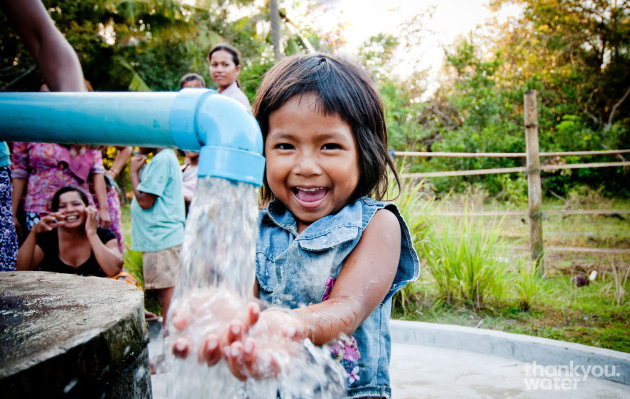In a surprise announcement this week, Australia-based social enterprise Thankyou announced it is stopping production of Thankyou Water because, as an organisation that exists to help change the world, it can no longer justify selling bottled water in single-use plastic.
PKN has covered Thankyou's unfolding story over the years, with CEO and co-founder Daniel Flynn speaking at our LIVE events and sharing the passion for social change that has been the driver for this social enterprise's success.
The organisation had its roots in bottled water, expanded into food, and then into personal care and baby products. It has since bowed out of food, citing market competition as the reason, and now has bowed out of water.

With social change as its cornerstone, it begs the the question why Thankyou opted to sell water packaged in plastic in the first place. The answer at the time was quite straightforward. The organisation's founding idea 12 years ago was to tap into consumer spending and channel it to help end extreme poverty. The global bottled water market then was worth $50bn (today it's more than $140bn). Thankyou targeted Australia's $600m bottled water market, selling its Thankyou branded water packed in plastic to support its mission of solving the world's water crisis: 900 million without access to safe water, with 4500 children dying each day from waterborne disease.
The organisation explains it thus: "The approach was simple; instead of the profits lining shareholder pockets, choose Thankyou Water, and you'll fund life-changing water projects in developing nations."

Daniel Flynn, speaking at one of PKN+ Food & Drink Business Live events, said he thought that bottled water was a product that made no sense, but while it did, Thankyou would provide a better choice in the market that would help bring water to those in need.
"That Australians spend $600m annually on bottled water seems ludicrous when you consider the fact that we can all get water from the tap for free," Flynn said.
But now it's reached the tipping point. Thankyou's statement said: "We naively always thought we’d eventually find a solution that's a win-win for humanity and the planet. We were wrong.
"Our team looked far and wide for responsible-ish solutions, from reducing the amount of plastic and waste-water used in production, to challenging the amount of recycled plastic used in the bottle.
"We explored alternatives with biodegradable products and carton solutions, but to be honest, all-in-all anywhere we landed felt no better than greenwashing. Every new step sounded better and more palatable, it would tick a 'green box’. But, the deeper we looked, and the more we considered the life cycle of the alternatives, we realised it wasn't actually any better for the environment. These realisations have left us facing reality. To reduce the impact that single-use bottled water has on the planet, well, we have no other option but to leave it behind."
As of this week, the organisation said, Thankyou Water production has ceased, with the last bottles "trickling off shelves" over the coming months.
What this means now, however, is a gap in income. Thankyou says it makes millions of dollars from selling bottled water alongside its personal care and baby ranges.
"So the question is, will we ever fill that gap with a water product again? The short answer is, yes. In time we will. It will look very different, but it will exist to serve both humanity and the planet," Thankyou said, alluding to new products in the pipeline, with plastic-free packaging, that will help fill the gap. It also alluded to a new chapter for the group.
On a parting note Thankyou extended thanks to all Australians who believed in the mission and campaigned to get it into stores.
"To the teams at 7-Eleven and Woolworths, we’re extremely humbled, and grateful for the support you’ve shown us over the years. Together, we’ve impacted 871,000 lives, and you each have helped us deliver $6.9m to our impact partners who support the world’s poorest on their journey out of extreme poverty," Thankyou said.
The organisation was at pains to state that while the water business is closing, it does not spell the end of Thankyou.
"We have, and always will exist to see a world where not one person lives in extreme poverty. Our purpose burns deep within our hearts and we’re not looking to play small to see this vision achieved.
"The best is yet to come, and we believe that together we can be that great generation. To get to where we are headed, we know that sometimes we must take action and challenge (even our very own!) systems, structures, and ways of doing stuff. This is not the end, it is just the beginning, so thanks for coming on the journey with us."





